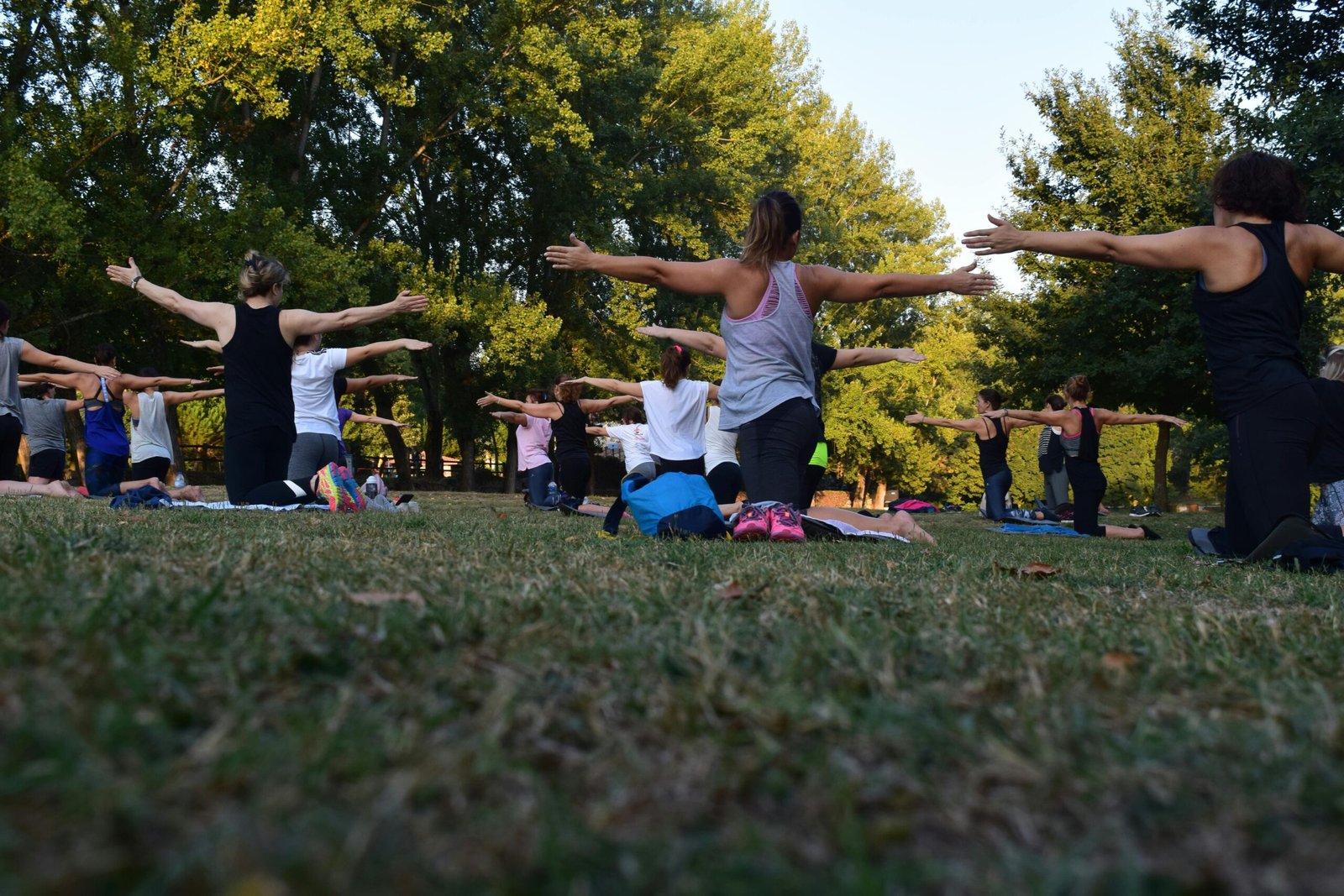In a world of fast fashion, it’s becoming increasingly important to make informed, conscious choices when it comes to our wardrobes. But what does it really mean to shop ethically, and how can you embrace a more sustainable approach to fashion? This guide will take you through the essentials of ethical fashion, offering practical tips and advice for shopping with a conscience.
What Is Ethical Fashion?
Ethical fashion is all about making clothing choices that are kind to people, animals, and the planet. It involves being mindful of the entire lifecycle of a product, from how it’s made to its environmental impact, as well as the treatment of the workers involved in its production. Essentially, ethical fashion is about aligning your purchases with your values, creating a positive impact rather than contributing to the harm caused by mass-market fashion.
The Core Principles of Ethical Fashion
- Sustainability: Clothing that’s produced with minimal harm to the environment.
- Fair Labor Practices: Ensuring that workers involved in making garments are paid fairly and treated ethically.
- Cruelty-Free and Animal Welfare: Avoiding clothing made from materials that harm animals or their habitats.
- Transparency: Brands should be open about where their materials come from and how their clothes are made.
Why Ethical Fashion Matters
Shopping ethically isn’t just a passing trend—it’s a vital part of supporting a fairer, more sustainable world. The fast fashion industry has been criticized for contributing to environmental degradation, exploitation of workers, and animal cruelty. By making ethical choices, you help counteract these negative impacts.
Environmental Impact
The fashion industry is one of the largest polluters in the world. From water usage to microplastic pollution, the environmental cost of mass-producing clothes is staggering. Ethical fashion brands, however, focus on eco-friendly materials, energy-efficient production processes, and sustainable packaging to minimize their environmental footprint.
Fair Wages and Workers’ Rights
Fast fashion often relies on low-wage labor in developing countries, where workers can face unsafe conditions and exploitative practices. Ethical brands, on the other hand, prioritize fair wages, safe working conditions, and workers’ rights, ensuring their production methods don’t contribute to human suffering.
Animal Welfare
Leather, wool, silk, and other animal-derived materials often come from cruel practices. Ethical fashion advocates for the use of cruelty-free and vegan alternatives, ensuring no harm is done to animals in the name of fashion.
How to Shop Ethically
Now that we know why ethical fashion is so important, how do you make the switch? Here are some practical tips to help you shop with a conscience.
1. Research the Brand’s Ethics
Before making a purchase, check if the brand aligns with ethical principles. Do they disclose their supply chain practices? Are they committed to fair wages, sustainability, and animal welfare? Many brands now have certifications (like Fair Trade or Global Organic Textile Standard) that demonstrate their commitment to ethical production.
2. Choose Sustainable Materials
Opt for clothing made from eco-friendly materials. Look for organic cotton, hemp, bamboo, or recycled fabrics. These materials have a lower environmental impact than conventional cotton or synthetic fibers. Additionally, some brands are now experimenting with innovative fabrics like mushroom leather or algae-based textiles.
3. Avoid Fast Fashion
Fast fashion focuses on mass-producing cheap, disposable clothing that’s often designed to be worn only a few times before it falls apart. Instead, invest in high-quality pieces that will last longer. You’ll reduce your overall consumption and avoid contributing to the wasteful cycle of fast fashion.
4. Support Secondhand and Vintage Shopping
Shopping secondhand is one of the most sustainable choices you can make. Not only does it reduce demand for new production, but it also gives clothing a second life. Thrift stores, online resale platforms, and vintage shops are all great places to find unique, ethically sourced clothing.
5. Consider Clothing Rentals
Clothing rental services are becoming increasingly popular, especially for events like weddings or parties. Renting clothes allows you to wear high-quality, stylish pieces without contributing to overproduction.
6. Repair and Upcycle
Instead of discarding clothes when they’re damaged, try repairing or upcycling them. Learn basic sewing skills, patch up holes, or turn old garments into something new. This not only saves money but also prevents clothing from ending up in landfills.
Top Ethical Fashion Brands to Consider
Many ethical fashion brands are leading the way by offering high-quality, stylish, and sustainable clothing. Here are a few brands that stand out for their commitment to ethical practices:
- Patagonia: Known for its dedication to sustainability, Patagonia uses recycled materials and donates a portion of profits to environmental causes.
- Reformation: This brand creates eco-friendly clothing using sustainable fabrics and practices, while also focusing on fair labor conditions.
- Everlane: Everlane is committed to transparency, offering clear information about the factories they work with and their environmental efforts.
- People Tree: A pioneer in ethical fashion, People Tree is dedicated to Fair Trade and environmentally friendly production methods.
- Allbirds: Known for their sustainable shoes made from wool and other eco-friendly materials, Allbirds also focuses on carbon neutrality.
How to Build an Ethical Wardrobe
Building an ethical wardrobe doesn’t mean you need to overhaul your entire closet overnight. Start small and make conscious choices moving forward.
1. Invest in Timeless Pieces
Focus on buying classic, versatile pieces that never go out of style. These items will last longer and can be mixed and matched with other clothes, reducing the need for constant new purchases.
2. Buy Less, But Better
Rather than buying a ton of cheap, low-quality clothes, invest in fewer items that are made to last. When you do buy new clothes, choose ones that are durable, well-made, and sustainable.
3. Care for Your Clothes
Proper care can extend the life of your clothing. Wash items in cold water, hang dry when possible, and follow the care instructions to avoid unnecessary wear and tear.
The Future of Ethical Fashion
The future of fashion looks brighter thanks to the increasing demand for sustainable and ethical choices. As more people begin to demand better practices from brands, we’re likely to see a shift toward more responsible production and consumption in the fashion industry. Ethical fashion isn’t just a trend—it’s the future of shopping.
Why the Shift Matters
The fashion industry is powerful, but it’s also one of the most polluting sectors in the world. By choosing to shop ethically, we send a message that we care about the people who make our clothes, the animals involved, and the health of our planet. The more we support ethical brands, the more we can push for systemic change.
Conclusion: Shop with Conscience, Dress with Purpose
Ethical fashion is a step toward creating a better world for both people and the planet. By choosing to shop with conscience, you’re not only making a positive impact on the environment but also supporting workers’ rights and promoting cruelty-free practices. Start small, make informed choices, and over time, you’ll build a wardrobe that aligns with your values.
Ethical fashion isn’t just about buying clothes; it’s about making choices that reflect your values and create a better future for everyone involved.
FAQs
1. How do I know if a brand is truly ethical? Look for certifications like Fair Trade, Global Organic Textile Standard (GOTS), or B Corp certification. Also, check if the brand shares information about their production processes, labor practices, and sustainability efforts on their website.
2. Is ethical fashion more expensive? While ethical fashion can be more expensive, it’s often due to the use of higher-quality materials, fair wages for workers, and eco-friendly production methods. Consider the long-term value and durability of these pieces, which may save you money over time.
3. Can I still shop ethically if I’m on a budget? Yes! Look for secondhand and vintage shops, or consider clothing swaps with friends. Many ethical brands also offer affordable options, and some online marketplaces focus on sustainable, budget-friendly choices.
4. What are the environmental benefits of shopping ethically? Ethical fashion brands prioritize sustainable practices, such as using eco-friendly materials, reducing waste, and minimizing pollution. By choosing these brands, you’re helping reduce the fashion industry’s negative environmental impact.
5. Can I make a difference by shopping ethically? Absolutely! Every purchase you make is a vote for the kind of world you want to live in. By supporting ethical brands, you help drive demand for sustainable and fair practices, encouraging more companies to adopt responsible production methods.




